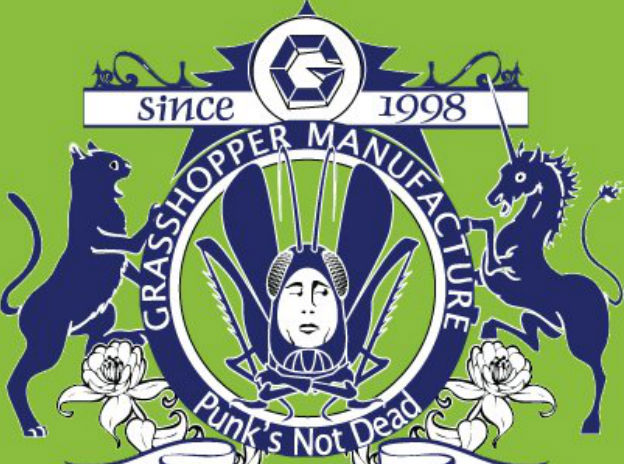
Punk is dead. If it isn’t, at least Grasshopper Manufacture’s DIY credo is. Goichi “Suda 51” Suda has sold his video game development house as a bastion for independently minded, outre video game design. It’s a studio whose slogan “Punk isn’t dead!” was embodied in games like Killer 7 and Flower, Sun, and Rain, games that skirted the line between console accessibility and Dadaist design. How can Grasshopper claim it’s punk though, when it’s owned by a publisher? GungHo Online Entertainment announced on Wednesday morning that it’s acquired Grasshopper Manufacture to bolster its in-house game development.
“We believe the strength of a publisher lies in its creative talent so with the edition of Grasshopper Manufacture and Suda 51 we are adding some of the most innovative talent in today’s gaming world to our stellar family of independently-operated studios,” said GungHo CEO Kazuki Hoishita in the announcement, “Suda 51 projects are known to put a unique spin on every game so coupled with our proven ability to support development with AAA resources including a tailored online experience, we believe gamers will benefit from this collaboration.”
GungHo’s built its business on acquiring other studios. Its greatest success has been with the Ragnarok series of MMOs created by Korean studio Gravity which GungHo acquired in 2002. In recent years, it’s been buying up more niche Japanese game developers, as it did in 2011 when it purchased Acquire (Way of the Samurai, Shinobido.) Grasshopper Manufacture falls well in line with GungHo’s expansion to date.
Grasshopper is also a good grab for GungHo’s new publishing subsidiary in the US. GungHo games like Lunar Silver Star Story for PSP and Ragnarok DS have been published by Xseed Games in the United States. No more, though. Xseed founder Jun Iwasaski became CEO of GungHo Online Entertainment America when it opened in October.
According to GungHo, the acquisition won’t effect any of Grasshopper’s titles already in development, so the new Xbox 360 and PlayStation 3 action game Killer is Dead will still be published by Marvelous AQL in Japan. Who will publish it in the US remains a mystery. As of Jan. 23, it appeared that Xseed would publish Killer is Dead in North America, but the publisher didn’t make an official announcement. The acquisition may have changed any early plans.
How will this change Grasshopper’s development process? Not much in all likelihood. Grasshopper’s most recent console projects received major funding from big publishers like Electronic Arts and Warner Bros. Interactive Entertainment, but the games made for each—Shadows of the Damned and Lollipop Chainsaw respectively—were not major sales successes.
Editors' Recommendations
- No More Heroes 3 won’t be Switch exclusive anymore come October
- No More Heroes 3 beginner’s guide
- No More Heroes 3 will be the last game in the series, SUDA51 says


